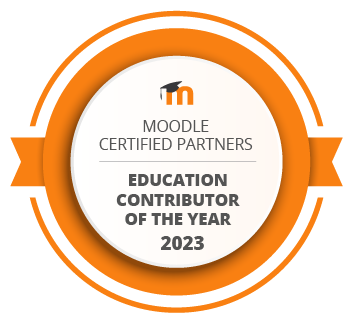The term Gamification refers to the use of game elements and game design techniques in non-game contexts to increase user engagement. In this course we analyze how you can gamify Moodle in order to increase learners’ engagement.
Moodle is a very flexible platform and we have fully customized it to highlight the Gamification elements provided by Moodle.
We have installed almost all of the Moodle – plugins associated with Gamification and we have searched to find and “upload” relevant resources and activities.
The aim of the course is to enable the learners to enrich their teaching process and thus make it more engaging and fun.
The Gamification in Moodle training program meets the different needs of each learner
- Provides educational material in various forms (text, video, links, scorms) and gives the learner the ability to freely “move” across the material depending on the degree he already knows the educational subject
- Provides self-assessment tools that enable each participant to evaluate his / her learning and the degree of acquisition of knowledge and skills.
- Provides a solid assessment system
- Suggests activities – challenges that the participants are called to implement
- Provides a system for collaboration between the participants and demonstration of their work
During the Gamification in Moodle program, the educators facilitate learners to design gamified modules in their subject area of interest, and guide them to implement them.
Here, Gamification is a Moodle layout where you apply interactivity, engagement and immersion that results in successful learning.











